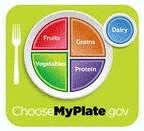Nutrition and Health Sciences, Department of

Department of Nutrition and Health Sciences: Dissertations, Theses, and Student Research
Date of this Version
7-19-2012
Document Type
Thesis
Abstract
As a result of ongoing efforts in the U.S. to promote breastfeeding as the normal way to nourish an infant, breastfeeding initiation rates are higher than they have been in decades. As the experts on food and nutrition through the lifecycle, registered dietitians (RDs) should be knowledgeable to promote and support breastfeeding. It is not well known if RDs have this knowledge. The purpose of this study was to determine the current knowledge of RDs about breastfeeding, the types of professional opportunities RDs have to promote and support breastfeeding, and the level of education RDs have to deal with breastfeeding problems. Questionnaires were sent to 353 Nebraska Dietetic Association members with a response rate of 67%. The survey included 34 general breastfeeding knowledge questions, seven advanced breastfeeding knowledge questions, and questions regarding personal and professional breastfeeding experience and preparedness to promote and support breastfeeding. Mean general knowledge score was 20.7/34 (61% correct) and mean advanced knowledge score was 4.1/7 (59% correct). Significantly higher general knowledge scores were seen for RDs who worked in community/public health programs, had attended breastfeeding conferences/seminars/workshops and those whose personal experience was their main source of practical breastfeeding information (pp<0.0001 for each). Few RDs had received adequate breastfeeding education in their undergraduate courses or dietetic internships (n=16 (7%) and n=14 (6%), respectively). Only 8% (n=19) of RDs felt very prepared to support breastfeeding mothers. Twenty-four percent of participants routinely counseled breastfeeding mothers and 79% of these RDs need more training on breastfeeding problem solving. Although the RDs surveyed had some breastfeeding knowledge, they are unprepared to support mothers with breastfeeding problems.
Advisers: Kaye Stanek Krogstrand and Julie A. Albrecht
Included in
Dietetics and Clinical Nutrition Commons, Human and Clinical Nutrition Commons, International and Community Nutrition Commons


Comments
A thesis Presented to the Faculty of The Graduate College at the University of Nebraska In Partial Fulfillment of Requirements For the Degree of Master of Science, Major: Nutrition and Health Sciences, Under the Supervision of Professors Kaye Stanek Krogstrand and Julie A. Albrecht. Lincoln, Nebraska: August, 2012
Copyright (c) 2012 Cassandra Dytrych